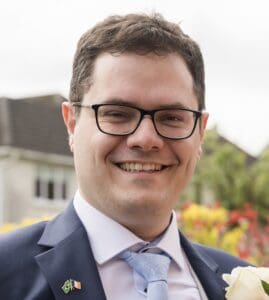

- This event has passed.
ONLINE COURSE – Introduction to Time Series Analysis using R and Rstudio (ITSA02) This course will be delivered live
6 February 2024 - 8 February 2024
£250
Event Date
Tuesday, February 6th, 2024
Course Format
This is a ‘LIVE COURSE’ – the instructor will be delivering lectures and coaching attendees through the accompanying computer practical’s via video link, a good internet connection is essential.
Course Program
TIME ZONE – Central Time Zone – however all sessions will be recorded and made available allowing attendees from different time zones to follow.
Please email oliverhooker@prstatistics.com for full details or to discuss how we can accommodate you.
Course Details
In this three-day course, we provide a comprehensive practical and theoretical introduction to time series analysis and forecasting methods using R. Forecasting tools are useful in many areas, such as finance, meteorology, ecology, public policy, and health. We start by introducing the concepts of time series and stationarity, which will help us when studying ARIMA-type models. We will also cover autocorrelation functions and series decomposition methods. Then, we will introduce benchmark forecasting methods, namely the naïve (or random walk) method, mean, drift, and seasonal naïve methods. After that, we will present different exponential smoothing methods (simple, Holt’s linear method, and Holt-Winters seasonal method). Finally, we will cover autoregressive integrated moving-average (or ARIMA) models, with and without seasonality. If time
allows, we will introduce regression with ARIMA errors.
Intended Audiences
This course is aimed at anyone who is interested in forecasting methods, and using R for data science or statistics. R is widely used in all areas of academic scientific research, and also widely throughout the public, and private sector.
Venue
Delivered remotely
Course Information
Time zone – Central Time Zone
Availability – TBC
Duration – 3 days
Contact hours – Approx. 14 hours
ECT’s – Equal to 1 ECT’s
Language – English
Teaching Format
This course will be largely practical, hands-on, and workshop based. For each topic, there will first be some lecture style presentation, i.e., using slides or blackboard, to introduce and explain key concepts and theories. Then, we will cover how to perform the various statistical analyses using R.
Any code that the instructor produces during these sessions will be uploaded to a publicly available GitHub site after each session. For the breaks between sessions, and between days, optional exercises will be provided. Solutions to these exercises and brief discussions of them will take place after each break.
All sessions will be video recorded and made available to all attendees as soon as possible.
Although not strictly required, using a large monitor or preferably even a second monitor will make the learning experience better, as you will be able to see my RStudio and your own RStudio simultaneously.
All the sessions will be video recorded, and made available immediately on a private video hosting website. Any materials, such as slides, data sets, etc., will be shared via GitHub
Assumed quantitative knowledge
A basic understanding of R and statistical concepts. Specifically, linear regression models, statistical significance, and hypothesis testing.
Assumed computer background
Familiarity with R. Ability to import/export data, manipulate data frames, fit basic statistical models & generate simple exploratory and diagnostic plots.
Equipment and software requirements
A laptop computer with a working version of R or RStudio is required. R and RStudio are both available as free and open source software for PCs, Macs, and Linux computers.
Participants should be able to install additional software on their own computer during the course (please make sure you have administration rights to your computer).
A large monitor and a second screen, although not absolutely necessary, could improve the learning experience. Participants are also encouraged to keep their webcam active to increase the interaction with the instructor and other students.
Cancellations are accepted up to 28 days before the course start date subject to a 25% cancellation fee. Cancellations later than this may be considered, contact oliverhooker@prstatistics.com. Failure to attend will result in the full cost of the course being charged. In the unfortunate event that a course is cancelled due to unforeseen circumstances a full refund of the course fees will be credited.
COURSE PROGRAMME
Tuesday 6th
Classes from 12:00 to 16:00 (Central Time Zone)
DAY 1
Section 1: Introductory concepts in time series analysis. White noise, stationarity, autocovariance and autocorrelation.
Section 2: Useful plots in time series analysis. Time plots, seasonal plots, autocorrelation plots. Time series decomposition: additive and multiplicative using the fable package in R.
Wednesday 7th
Classes from 12:00 to 16:00 (Central Time Zone)
DAY 2
Section 3: Benchmark forecasting methods. The naïve, mean, drift, and seasonal naïve methods.
Section 4: Exponential smoothing. Simple exponential smoothing, Holt’s linear method, Holt-Winters seasonal method, and fable’s general ETS method.
Thursday 8th
Classes from 12:00 to 16:00 (Central Time Zone)
DAY 3
Section 5: Autoregressive (AR) and moving-average (MA) models. Unit root tests for stationarity. How to identity the order of an AR(p) or an MA(q) model using autocorrelation and partial autocorrelation plots.
Section 6: Autoregressive integrated moving average (ARIMA) models and seasonal ARIMA models. Automatic order selection for a (seasonal) ARIMA model using fable. Linear regression with ARIMA errors.
Course Instructor
Dr. Rafael De Andrade Moral
Rafael is an Associate Professor of Statistics at Maynooth University, Ireland. With a background in Biology and a PhD in Statistics from the University of São Paulo, Rafael has a deep passion for teaching and conducting research in statistical modelling applied to Ecology, Wildlife Management, Agriculture, and Environmental Science. As director of the Theoretical and Statistical Ecology Group, Rafael brings together a community of researchers who use mathematical and statistical tools to better understand the natural world. As an alternative teaching strategy, Rafael has been producing music videos and parodies to promote Statistics in social media and in the classroom. His personal webpage can be found here
ResearchGate
GoogleScholar
ORCID
GitHub
